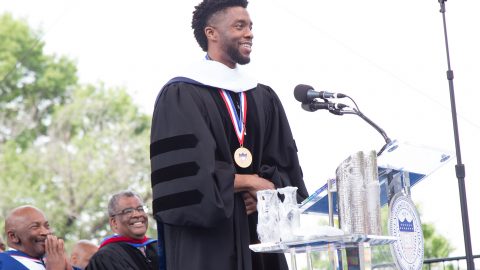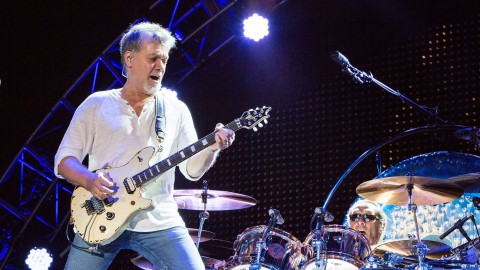
Making her comeback on an otherwise ordinary Friday morning in August 2020, boisterous Bronx queen Cardi B can’t have known the enormous fuss she was about to create. ‘WAP’, Cardi’s lyrically explicit banger with Houston superstar Megan Thee Stallion, would evolve into the year’s most controversial song – thanks, largely, to witty wordplay like: “He got a beard, well, I’m tryna wet it / I let him taste it, now he diabetic.” Today, more than a year on from its release, we’re still asking the same question: why was two women candidly talking about their sexuality so polarising?
Well, Channel 4’s new documentary Queens Of Rap attempts to give us an answer. Led by investigative journalist and podcaster Poppy Begum, a (nearly) all-female line-up looks back on four decades of hip-hop. Their biggest insight? That only now, 45 years since the genre’s birth, can multiple female rappers succeed at the same time. The fact, they argue, that most fans can name just five notable women in rap is novel in itself.
Of course, the public repsonse to ‘WAP’ – Russell Brand mansplaining feminism, famous conservative commentators Candace Owens and Ben Shapiro condemning the tune’s raunchy lyrics – proves there’s still a long way to go. Indeed, not all of Queens Of Rap’s stellar bill argue ‘WAP’ is without flaws. Zeze Millz, a presenter turned Black British cultural commentator believes that Cardi B and Megan Thee Stallion’s quid pro quo of “Give me everything you got for this wet ass pussy” shows it’s “definitely not a feminist masterpiece”, but rather “soft porn”. It’s one of the boldest statements in the film.
Later on, the doc discusses whether ‘WAP’ “commodifies” women’s bodies. Overt sexuality in hip-hop is nothing new, with artists like Lil Kim and Foxy Brown dominating the late ‘90s and early-2000s with their bashful demeanours that were both sexy and street-wise. Yet Kim Osorio, editor-in-chief of US magazine The Source during the noughties, says she felt pressure to put women on her covers in bikinis because she knew they’d sell more copies. It’s the unfortunate tug-of-war between women feeling sexually liberated enough to flaunt their bodies on their own terms and the sexualised male gaze – something that is clearly prevalent within ‘WAP’ and it’s much-debated video.
Another insightful segment from Queens Of Rap involves an interview with one of the first first female MCs to become very popular, Roxanne Shante. At just 14 years old. she was competing in rap battles against much older opponents from her native Queens, New York – and was on the rise during hip-hop’s pioneering years in the mid-80s. She tells a story about the time she nearly won the World Supremacy Belt, which gave the holder the right to call themselves “The Best MC In The World”. Roxanne got to the final against someone called Busy Bee, and she overheard a judge asking: “What does it take for her to lose?” Their view (a common one at the time) was that a female “Best MC In The World” hindered hip-hop more than it helped.
This puts into perspective just how important ‘WAP’ and the song’s success really is. Cardi and Megan’s truly filthy return was – and still is – inherently feminist. With their billions of streams and three-plus minutes of sex talk, they’ve started to dismantle the patriarchal constructs within the genre. Queens Of Rap captures this perfectly.
The post New doc ‘Queens Of Rap’ reinforces the importance of ‘WAP’, more than a year on appeared first on NME.





